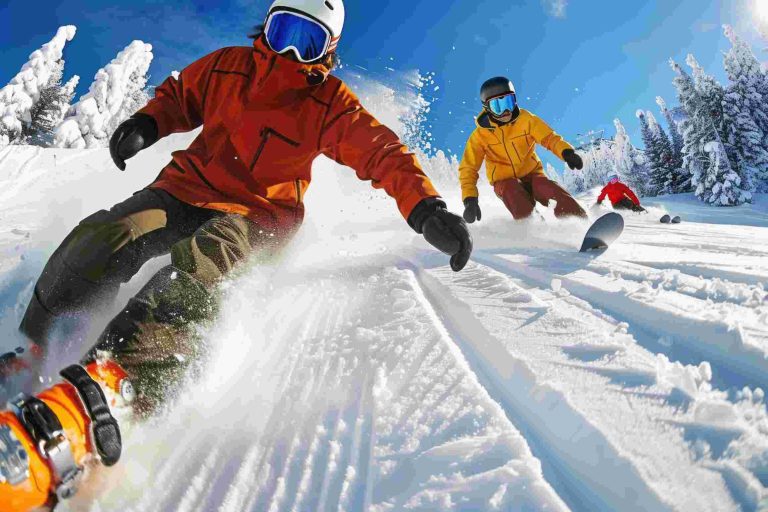Winter turns the world into a pristine playground of adventure. While some stay indoors, outdoor enthusiasts embrace snow-covered slopes and tranquil trails for unique, unforgettable experiences. Whether you crave adrenaline or peaceful moments in nature, this guide highlights the best winter activities and tips for making the most of the season.
Skiing and Snowboarding: Master the Mountain
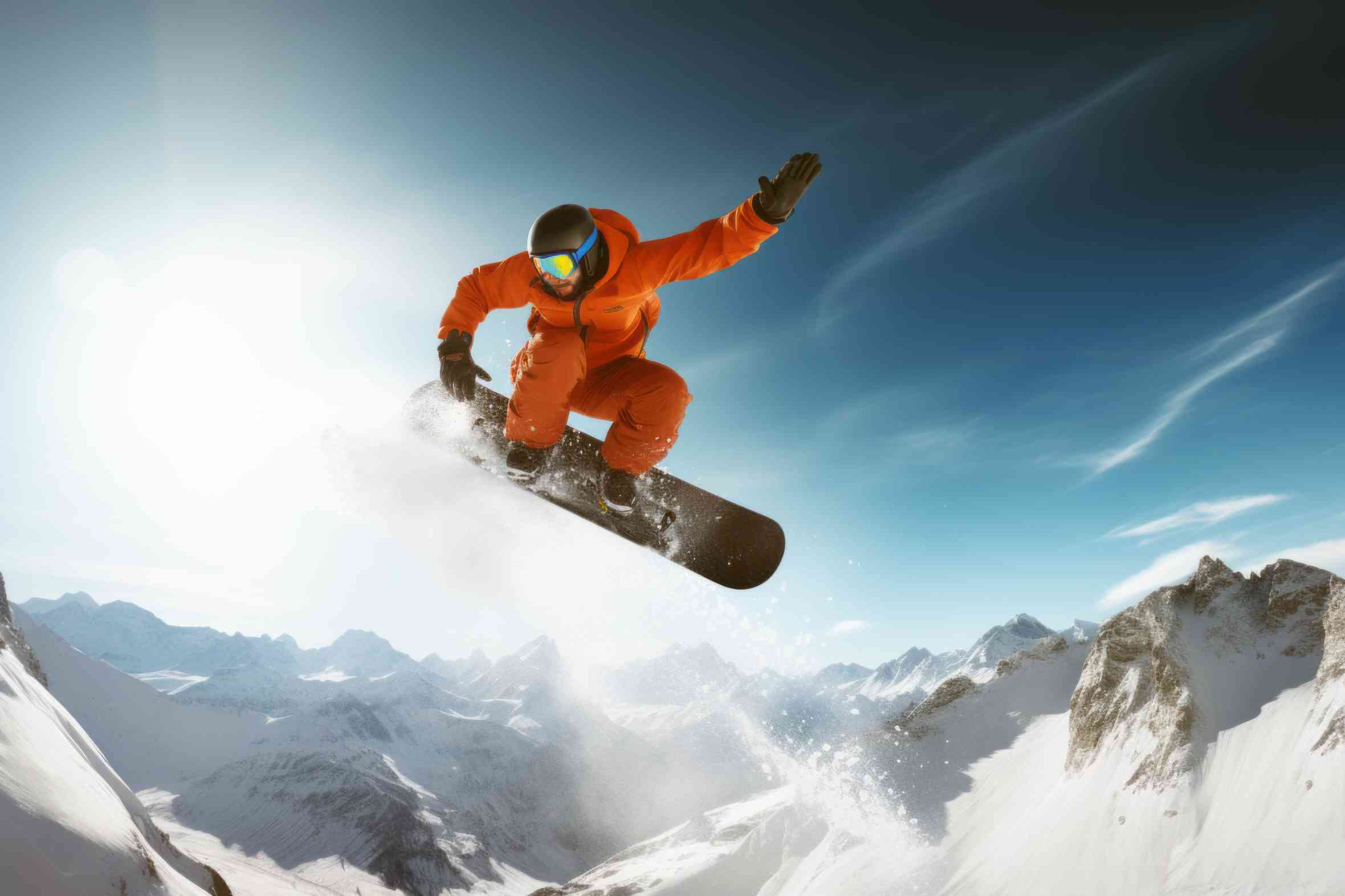
Skiing and snowboarding remain the quintessential winter sports, offering an unmatched combination of speed, skill, and stunning mountain scenery. These activities provide excellent cardiovascular exercise while challenging your balance and coordination.
Getting Started on the Slopes
For beginners, taking a lesson is essential for both safety and enjoyment. Professional instructors teach proper technique, equipment use, and mountain safety protocols. Most ski areas offer rental equipment, making it easy to try these sports without a significant upfront investment.
Start on gentle beginner slopes, often called “bunny hills,” to build confidence and muscle memory. Focus on learning to stop and control your speed before attempting steeper terrain. Skiing typically feels more intuitive for beginners, while snowboarding has a steeper initial learning curve but faster progression once you master the basics.
Choosing the Right Mountain Experience
Different mountains cater to various skill levels and preferences. Some focus on family-friendly experiences with excellent beginner facilities, while others challenge advanced skiers with steep terrain and deep powder. Research trail maps and difficulty ratings before booking your trip.
Consider factors like elevation, snow conditions, and weather patterns when planning your mountain adventure. Higher elevations typically offer more reliable snow conditions and longer seasons, while lower mountains might provide more affordable options and easier access.
Snowshoeing: Explore Winter’s Hidden Trails
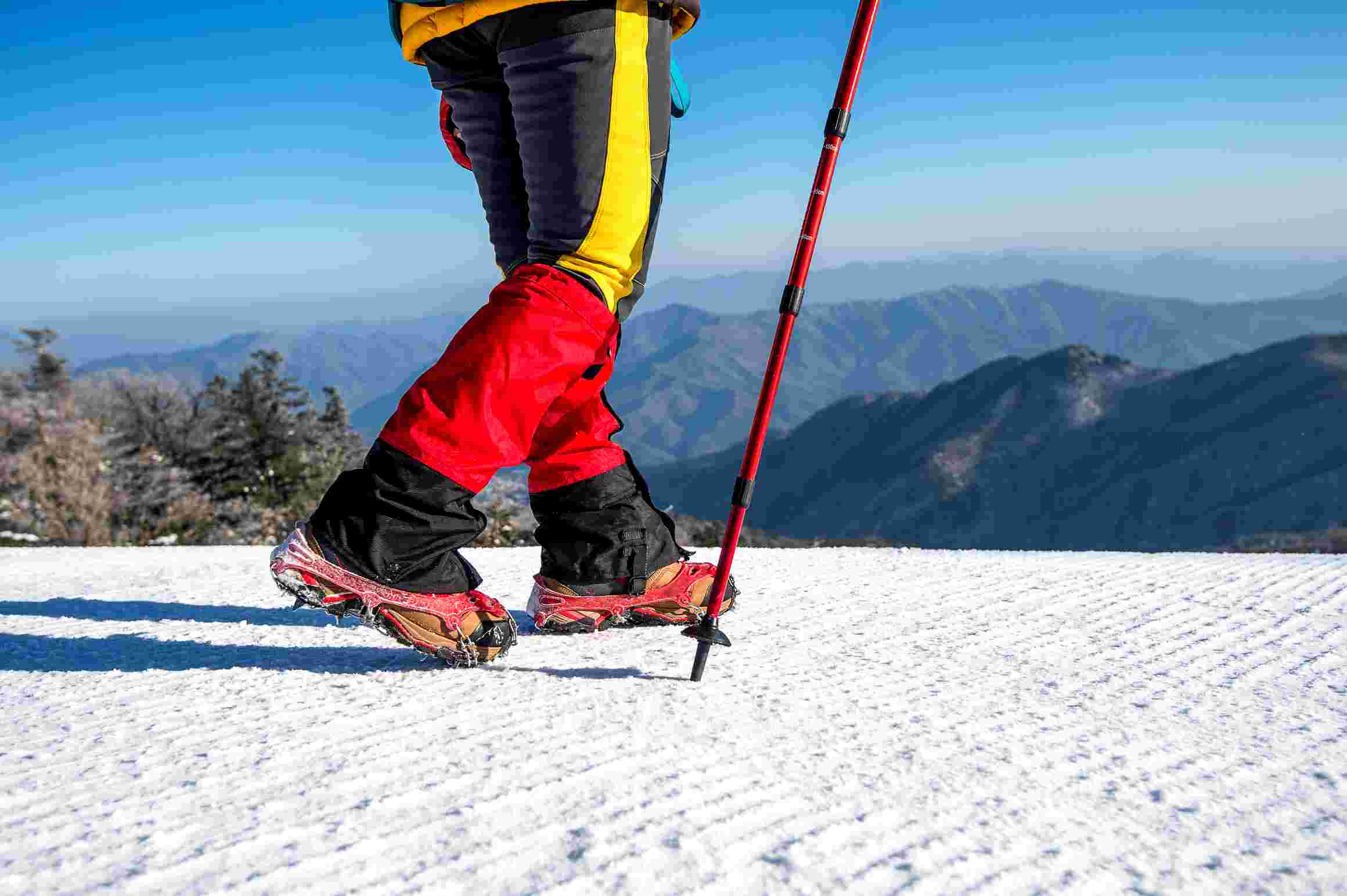
Snowshoeing offers a peaceful way to explore winter landscapes while getting an excellent workout. This activity requires minimal skill to start, making it accessible to people of various fitness levels and ages.
Essential Snowshoeing Gear
Modern snowshoes are lightweight and easy to use, with simple binding systems that accommodate most winter boots. Choose snowshoes based on your body weight and the type of terrain you’ll explore. Larger snowshoes provide better flotation in deep powder, while smaller ones offer more maneuverability on packed trails.
Don’t forget trekking poles, which provide stability and help propel you forward through the snow. Dress in moisture-wicking layers, as snowshoeing can be surprisingly strenuous. Waterproof boots with good insulation keep your feet warm and dry throughout your adventure.
Finding the Perfect Trail
Look for designated snowshoe trails in state parks, national forests, and recreation areas. These trails are typically well-marked and maintained for winter use. Many locations offer varying difficulty levels, from flat lakeside paths to challenging mountain ascents.
Check trail conditions and avalanche risks before heading out, especially in mountainous areas. Inform someone of your planned route and expected return time. Consider bringing a map, compass, and emergency supplies for longer excursions.
Dog Sledding: Experience Arctic Adventure
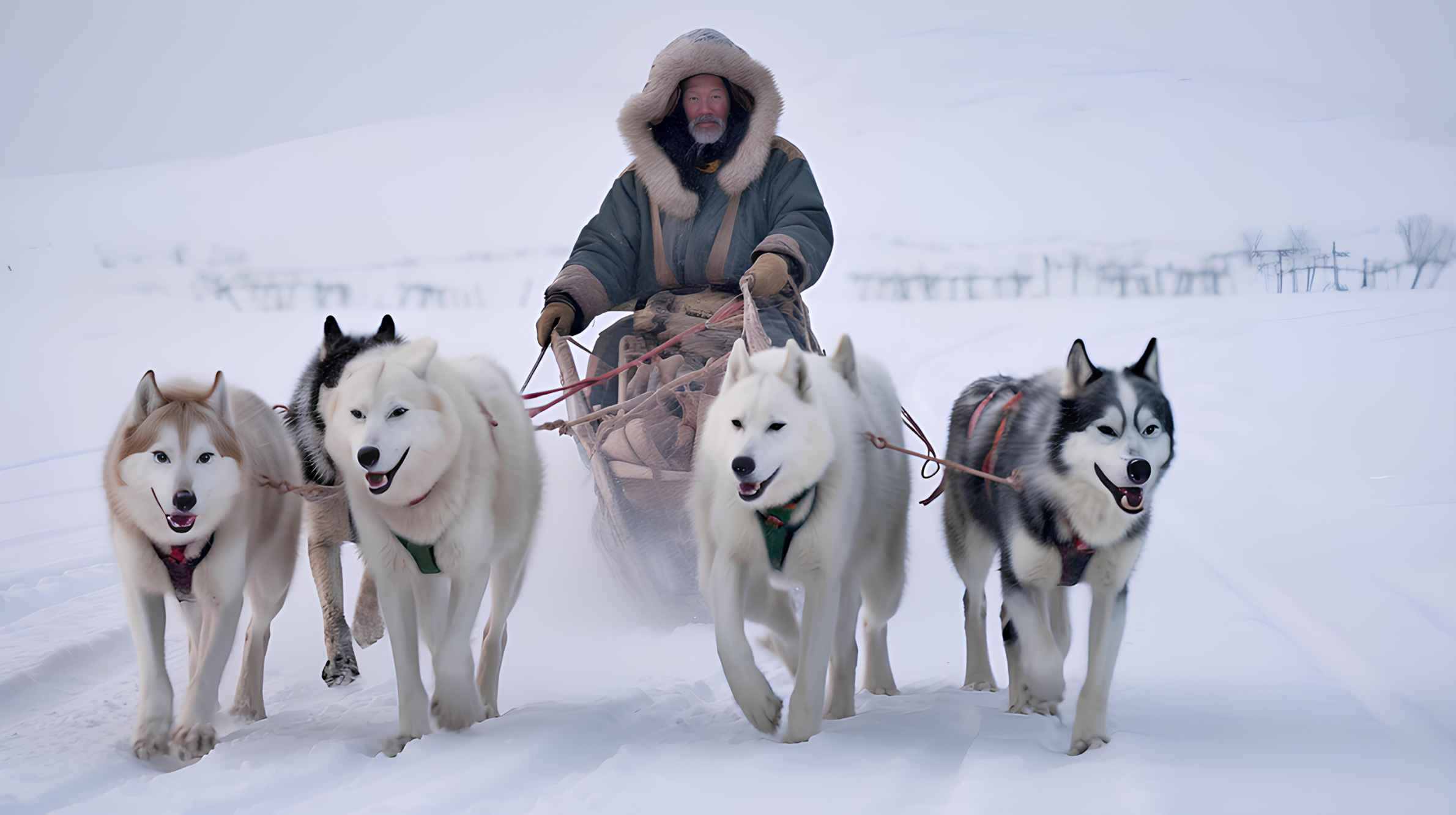
Dog sledding provides a unique opportunity to connect with nature while experiencing a traditional form of winter transportation. This thrilling activity combines the excitement of speed with the joy of working alongside specially trained sled dogs.
What to Expect on Your Sled Ride
Most dog sledding experiences begin with an introduction to the sled dogs and basic safety instructions. You’ll learn about the different breeds commonly used, such as Siberian Huskies and Alaskan Malamutes, and their incredible endurance capabilities.
Many locations offer both passenger rides and opportunities to drive your own sled. Passenger rides allow you to relax and enjoy the scenery while an experienced musher handles the team. Driving experiences teach you basic commands and sled handling techniques under close supervision.
Dog sled rides in Park City provide an excellent example of how this activity has adapted to modern tourism while maintaining its authentic character. Professional guides ensure both safety and education throughout the experience.
Preparing for Your Sled`ding Adventure
Dress warmly in layers, as you’ll be exposed to wind chill during the ride. Many operators provide warm blankets, but personal cold-weather gear ensures your comfort throughout the experience. Waterproof outer layers protect against snow spray kicked up by the dogs.
Book your dog sledding adventure early, as these experiences often fill up quickly during peak winter months. Check weather conditions, as extreme cold or storms may result in cancellations for safety reasons.
Ice Skating: Glide Through Winter Magic
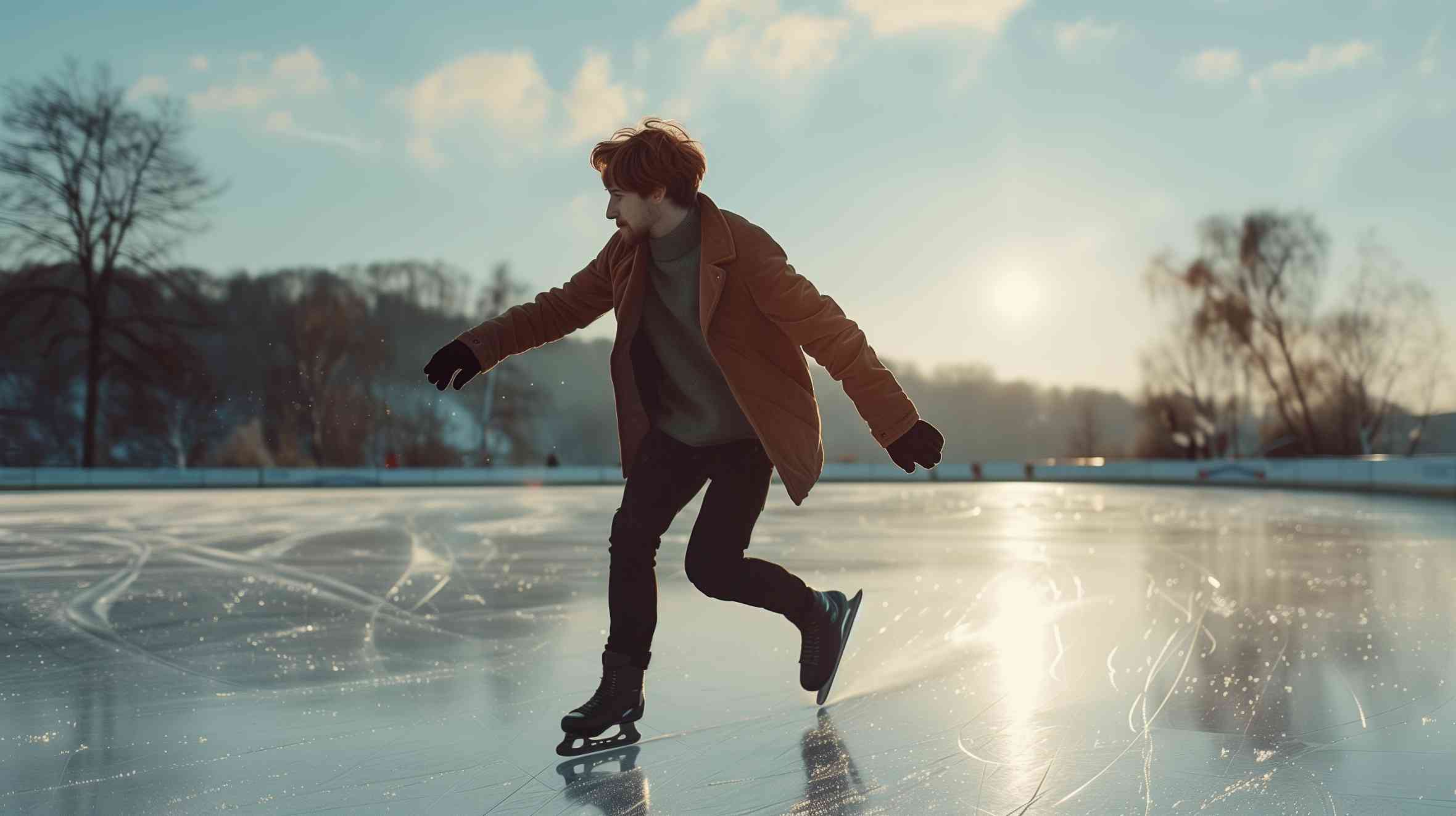
Ice skating combines grace, athleticism, and pure fun in a winter activity suitable for all skill levels. Whether on a frozen pond, outdoor rink, or indoor facility, skating provides excellent exercise while creating magical winter memories.
Mastering the Basics
Start with properly fitted skates that provide adequate ankle support. Rental skates work well for occasional skaters, but regular participants benefit from purchasing their equipment for a better fit and performance.
Begin by learning to balance on the ice while holding onto the rink boards. Practice marching in place, then progress to gliding with one foot while pushing with the other. Most people find it easier to learn going forward first, then tackle backward skating once they’re comfortable.
Safety on the Ice
Always check ice conditions before skating on natural bodies of water. Ice should be at least four inches thick for safe skating, and clear blue ice is generally stronger than cloudy or white ice. Avoid areas with visible cracks, springs, or flowing water.
Wear appropriate clothing that allows freedom of movement while keeping you warm. Gloves protect your hands if you fall, and helmets provide additional safety for beginners or aggressive skaters.
Winter Festivals: Celebrate the Season
Winter festivals transform cold months into celebrations filled with music, food, art, and community spirit. These events showcase the beauty of winter while bringing people together for shared experiences.
Types of Winter Celebrations
Ice sculpture festivals display incredible artistic talent while celebrating winter’s medium. Artists create elaborate sculptures from blocks of ice, often competing for prizes and recognition. Many festivals include interactive elements where visitors can try ice carving themselves.
Winter music festivals bring outdoor concerts to snowy settings, creating unique acoustic experiences. Bundle up and enjoy performances ranging from classical to contemporary, often accompanied by warming stations and hot beverages.
Light festivals illuminate the dark winter months with spectacular displays. These events transform parks, buildings, and entire neighborhoods into glowing wonderlands that celebrate both technology and artistic creativity.
Planning Your Festival Experience
Research festivals in your area well in advance, as many occur only during specific weekends or limited periods. Some events require tickets or reservations, especially for popular activities or performances.
Dress appropriately for extended outdoor exposure, including warm footwear suitable for walking on snow and ice. Bring hand warmers, thermoses with hot drinks, and cash for vendors who may not accept credit cards in outdoor settings.
Winter Photography: Capture Snowy Scenes
Winter provides incredible opportunities for photography, from intimate frost patterns to sweeping snow-covered landscapes. Cold weather presents unique challenges but also rewards photographers with stunning natural beauty.
Technical Considerations
Cold temperatures affect camera batteries, reducing their lifespan and performance. Carry extra batteries and keep them warm in inner jacket pockets. Allow your camera to acclimate gradually when moving between cold outdoor temperatures and warm indoor spaces to prevent condensation.
Snow can fool your camera’s light meter, often resulting in underexposed images that appear gray rather than white. Use exposure compensation to brighten your images, or shoot in manual mode for greater control over your settings.
Creative Winter Photography Ideas
Capture the intricate details of frost patterns on windows, leaves, and branches for stunning macro photography. Early morning light often provides the best illumination for these delicate formations.
Experiment with silhouettes against snowy backgrounds, using the bright white snow to create dramatic contrast with darker subjects. Winter storms can create mood and atmosphere in landscape photography, though always prioritize safety over getting the perfect shot.
Planning Your Winter Adventure Season
Creating a winter adventure plan helps you make the most of the snowy months while staying safe and prepared. Consider your fitness level, experience, and available time when choosing activities.
Building Your Winter Skills
Start with easier activities and gradually progress to more challenging adventures as your skills and confidence grow. Many winter sports benefit from lessons or guided experiences, especially for beginners.
Consider taking a winter wilderness safety course to learn about cold-weather hazards, proper clothing systems, and emergency procedures. These skills enhance your enjoyment while keeping you safe during outdoor winter activities.
Gear and Equipment Planning
Invest in quality base layers and insulation that work across multiple activities. Merino wool and synthetic materials perform well in winter conditions, while cotton should be avoided as it retains moisture and loses insulation when wet.
A good pair of insulated, waterproof boots serves you well across many winter activities. Quality gloves, hats, and face protection make the difference between enjoyable adventures and miserable experiences in cold weather.
Conclusion
Don’t let winter slip by from the comfort of your couch. Pick one or two activities from this guide and start planning your snowy adventures. With proper preparation, the right gear, and a willingness to try something new, you’ll create lasting memories, build fitness, and develop fresh skills. Embrace the season and make this winter one to remember!

